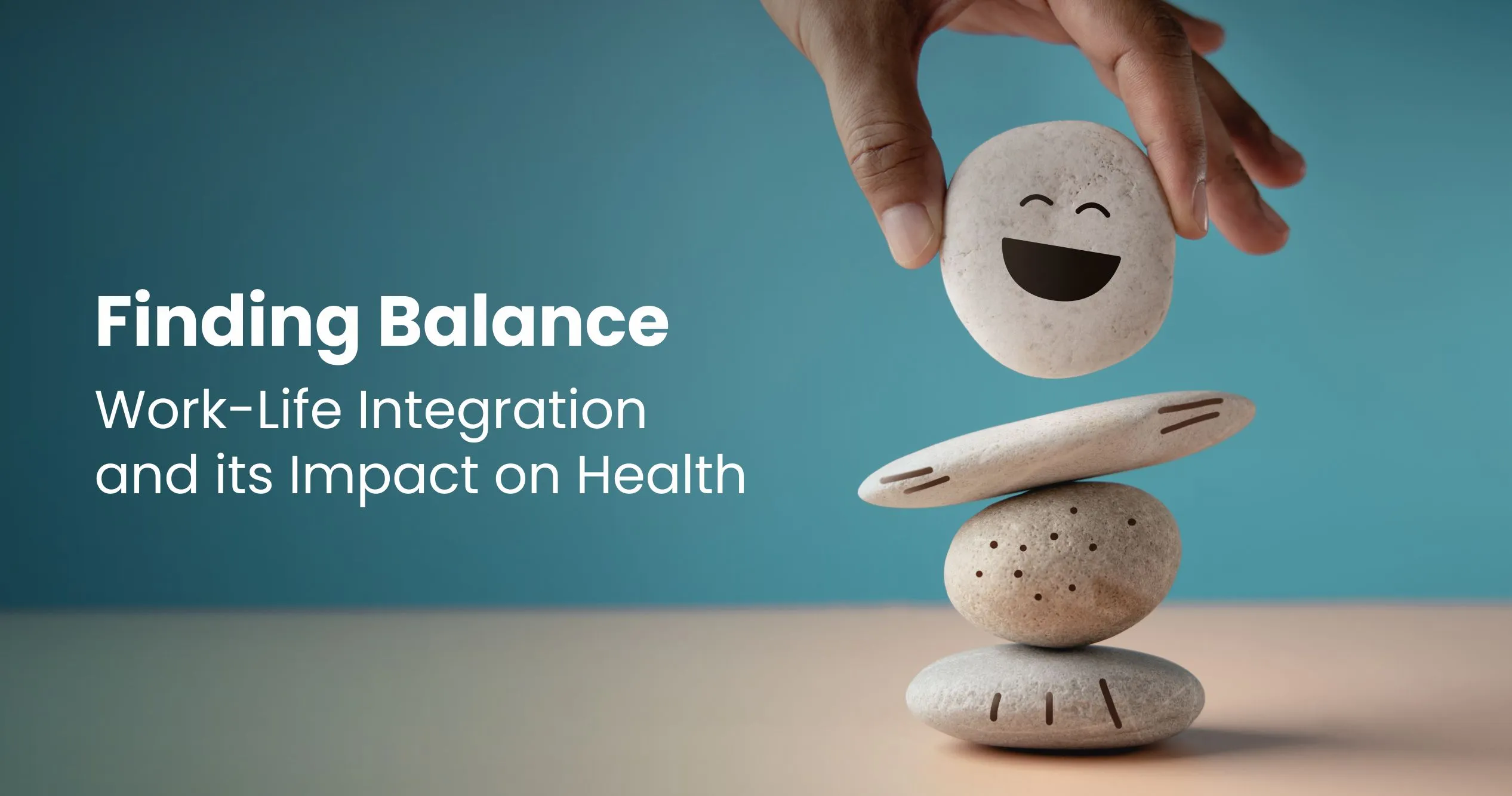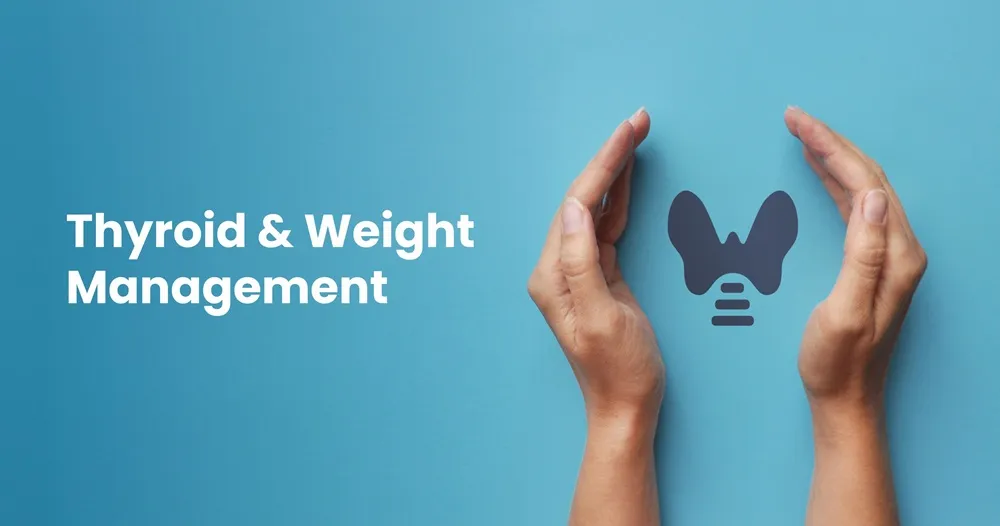Finding Balance: Work-Life Integration and its Impact on Health
Mar 14, 2024

In today's achievement-oriented world, the lines between work and life are becoming increasingly blurred. Long working hours, increased workloads, and constant connectivity via technology are the new normal. Research indicates that chronic work-life imbalance can have severe consequences for physical and mental health. This non-stop lifestyle leaves little time for family, friends, self-care, passions, and community. However, with some conscious effort and smart strategies, achieving work-life integration is possible.
Rising Issue of Work-Life Imbalance
According to a recent survey, nearly 88% of working professionals in urban India report poor work-life balance. The majority work for over 50 hours a week at their jobs. With long commutes added to it, people are left with very little time for themselves or their loved ones. This often leads to chronic stress, insomnia, headaches, fatigue, and even emotional breakdowns. Also, prolonged work stress significantly increases the risk of cardiovascular disease, diabetes, anxiety, depression, and more.
Some other potential risks of work-life imbalance include:
- Burnout: Feeling exhausted, devoid of energy, and unable to meet constant demands.
- Strained Relationships: Having little quality time for family, friends, and social connections.
- Unhealthy Habits: Relying on fast food, caffeine, and sugar for quick energy fixes.
- Lack of Exercise: Not making time for physical activity amidst busy work schedules.
- Poor Self-care: Neglecting health screenings, checkups, proper sleep, and alone time.
Strategies to Achieve Work-Life Integration
While perfect balance may seem unrealistic, small, sustainable changes can help integrate your personal and professional lives. With some conscious planning and constructive company policies, you can nurture a healthier, more creative you. Here are some tried and tested strategies for you to maintain a healthy work-life balance:
Set Reasonable Work Hours
- Be clear about your time commitments with managers and colleagues.
- Block out time for family dinners, exercise, and hobbies before taking on extra work.
- Pace yourself for sustainable results over quick-win projects involving long hours.
- Say no to non-essential meetings to prevent burnout.
Take Regular Breaks
- Step away from your workstation every 45-60 minutes.
- Even a short 5-10 minute walk helps reboot your mind and body.
- Have a proper lunch break to nourish yourself.
- Disconnect technology post-work to unwind properly.
Prioritize Self-care
- Fix a consistent bedtime routine and try to get 7-8 hours of sleep daily.
- Prepare healthy meals instead of ordering processed foods.
- Exercise at least 30 minutes daily - even light activities like walking benefit.
- Practice calming techniques like breathwork, meditation and yoga, which lower blood pressure, anxiety and more.
Nurture Personal Relationships
- Spend quality time with loved ones without distractions.
- Share meals and have face-to-face conversations.
- Go for walks and pursue hobbies together over the weekends to reconnect.
- Show affection and offer emotional support proactively.
- Small actions every day foster strong lifelong bonds.
Discuss Flexi-Work Options
- See if hybrid or flexible schedules are possible at your workplace for better integration.
- Options like 1-2 days of remote work per week, flexi-hours, job sharing, and condensed hours can help.
- Communicate openly with reporting managers about challenges and potential solutions.
Set Device/Email-Free Zones
- Discourage colleagues from contacting you outside work hours unless it's urgent.
- Similarly, you
 avoid checking emails on leave or on weekends.
avoid checking emails on leave or on weekends. - Remove work apps from personal devices and turn on out-of-office email replies when on holiday. This reinforces much-needed boundaries.
Take Time Off Frequently
- Use your paid leave allowances - breaks provide a chance to pursue interests otherwise ignored.
- Even mini-breaks like 3-day weekends help relax and reboot.
- Schedule longer vacations at least twice annually for complete rejuvenation.
- And stay fully unplugged from work during this time.
Wellness Initiatives
- Companies invest in health programs like free annual checkups, gym memberships, yoga/meditation classes, smoking cessation groups, etc., to manage employees' physical and mental health better.
- Ergonomic workstations, regular breaks, and stress management strategies and workshops further help.
Recreational Engagement
- Group leisure activities like sports tournaments, picnics, festivals/special events planning, adventure trips, etc., to promote bonding and joy at work.
- These rewarding non-professional interactions are refreshing and help rejuvenate employees.
Workplace Counselling
- Confidential external counseling provides employees with a safe space to share personal challenges.
- Counselors help identify practical solutions related to relationships, parenting, finances, and unhealthy coping mechanisms.
Benefits of Work-Life Integration
Finding an optimal balance between the demands of work and personal life can have tremendous benefits for health, relationships and performance. When work-life integration is achieved, people report higher job and life satisfaction. Research studies have consistently demonstrated a variety of benefits:
- Improved Mental Health: By reducing chronic work stress and burnout, people lower their risk for anxiety, depression, and emotional exhaustion. Taking time for adequate rest and recovery prevents the mind and body from becoming depleted.
- Increased Productivity: With sufficient time away from work to recharge and renew, people report greater focus, creativity, and cognitive performance on the job. Taking a break allows the mind to consolidate information and come back with fresh inspiration.
- Better Physical Health: More free time means people can adopt healthy lifestyle habits like regular exercise, nutritious cooking, preventative medical care, and sufficient sleep. This reduces the risk of chronic illnesses like heart disease, diabetes, and obesity.
- Stronger Relationships: When work life does not consistently override personal life, people can devote quality time to nurturing relationships with family, friends and community. This provides social support and emotional intimacy.
- More Preventative Care: People with packed schedules skip doctor visits and health screenings. Work life integration provides time for regular medical care and illness prevention.
- Lower Substance Abuse Risk: Chronic job stress is also associated with increased alcohol, tobacco, and drug use. Work-life balance curbs these unhealthy coping mechanisms.
The Way Forward
Instead of considering careers and personal life as an either/or choice, integrate the two with some conscious planning. With India's improving economy and evolving employer attitudes about well-being, a healthier future lies ahead!
As an individual, start with getting clarity on your current health status. Opt for preventive health checks like the comprehensive Apollo Diagnostics Health Packages, which assess key wellness parameters. Our certified pathologists and state-of-the-art labs provide accurate screening for risks like diabetes, heart disease, infections, vitamin deficiencies, etc. Based on expert guidance from these reports, you can make the necessary lifestyle changes and prioritize healthy work-life balance.
FAQs
1. Why is work-life integration important for health?
Proper integration can reduce stress, improve mental well-being, and promote a healthier lifestyle by allowing time for self-care.
2. What are the signs of poor work-life integration?
Signs include chronic stress, burnout, neglecting personal relationships, and a sedentary lifestyle leading to health issues.
3. Can technology help with work-life integration?
Yes, tools like time-tracking apps, virtual assistants, and remote work options can help balance responsibilities more effectively.
4. How can employers support work-life integration?
Employers can offer flexible schedules, remote work options, wellness programs, and clear communication about expectations to promote work-life integration.
Related Blog Post
Blog Categories
- Child Health
- Mens Health
- Women's Health
- Mental Health
- Health Myths & Facts
- Fitness
- Nutrition/Recipes
- Remedies
- Weight Management
- Stress Management
- Health Supplements
- Addiction Management
- Disease Management
- Allergy
- Anemia
- Arthritis
- Asthma
- Autoimmune Diseases
- Blood Pressure
- Cancer
- Deficiencies
- Dengue/Malaria/Chikungunya
- Diabetes
- Eye Problems
- Heart Diseases
- Hepatitis
- HIV/AIDS/STD
- Hormonal Imbalance
- Infection/Flu/Viral
- Kidney
- Liver
- Menstrual Problems
- Pregnancy
- Skin & Hair Problems
- Stomach Ailments
- Thyroid
- Others
- Health Checkups
- Diagnostics/Pathology
- Lifestyle & Wellness
- Covid
- Medical Tests
- Cholesterol
- Health Tips
- Parent Care/Old Age
- Lungs
- Food Intolerance








